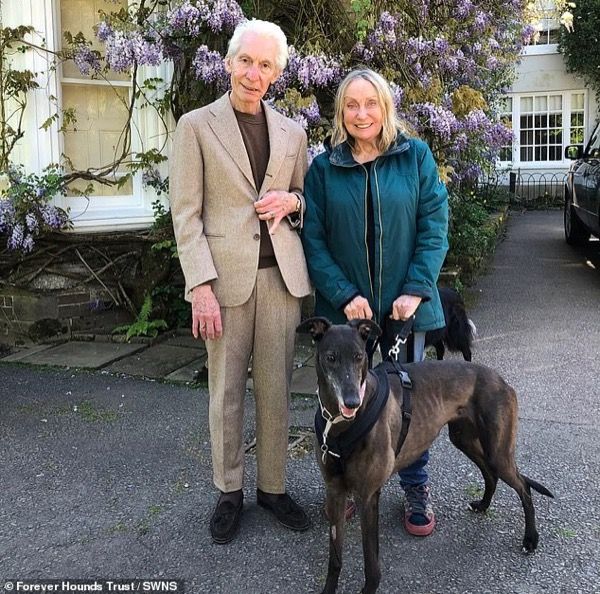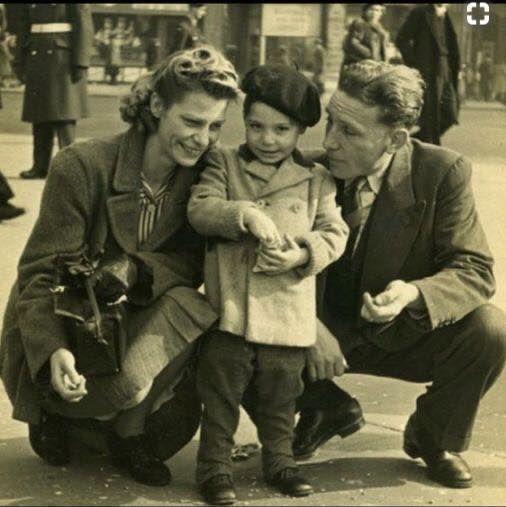RIP Charlie Watts
-
I was just wondering the other day which Stone would go first. This is awful.
-
Link to video
Much younger Charlie
-
The Who guitarist posted a photo of a rainbow on Instagram, captioning it, “Full Moon. Rainbow. Always a sign. Charlie Watts wept at Keith Moon’s funeral. I wish I was capable of such tears today. Instead, I just want to say goodbye. Not a rock drummer, a jazz drummer really, and that’s why the Stones swung like the Basie band!! Such a lovely man. God bless his wife and daughter, and I’ll bet the horses will miss him too.”
-
Watts was due to tour the US with the band later this year. But it was announced earlier this month he would not feature due to a recent emergency surgery.
His London publicist, Bernard Doherty, said in a statement this evening: 'It is with immense sadness that we announce the death of our beloved Charlie Watts.

Pictured: Charlie Watts appeared in good spirits alongside his wife Shirley, in the final image of the pair together before his death aged 80Married 57 years, God bless him!
-
Even though Jagger and Richards were the acknowledged leaders of the Stones, Mr. Watts was something of grounded center of the group, keeping the other members from becoming too consumed by their rock star fame.
One night in Amsterdam in the 1980s, when Richards was celebrating his marriage, he and Jagger stayed up most of the night drinking. At 5 a.m., Jagger called Mr. Watts’s hotel room, according to Richards’s autobiography, and said, “Where’s my drummer?”
“About twenty minutes later,” Richards went on, “there was a knock at the door. There was Charlie Watts, Savile Row suit, perfectly dressed, tie, shaved. . . . I opened the door and he didn’t even look at me, he walked straight past me, got hold of Mick and said, ‘Never call me your drummer again.’ Then he hauled him up by the lapels . . . and gave him a right hook. Mick fell back onto a silver platter of smoked salmon on the table and began to slide towards the open window and the canal below it. . . . [I] caught Mick just before he slid into the Amsterdam canal.” -
https://theweek.com/articles/861750/coming-death-just-about-every-rock-legend
The coming death of just about every rock legend
(This is 2 years ago)
But there's another sense in which rock is very nearly dead: Just about every rock legend you can think of is going to die within the next decade or so.
Yes, we've lost some already. On top of the icons who died horribly young decades ago — Brian Jones, Jimi Hendrix, Janis Joplin, Jim Morrison, Elvis Presley, John Lennon — there's the litany of legends felled by illness, drugs, and just plain old age in more recent years: George Harrison, Ray Charles, Michael Jackson, Lou Reed, David Bowie, Glenn Frey, Prince, Leonard Cohen, Tom Petty.
Those losses have been painful. But it's nothing compared with the tidal wave of obituaries to come. The grief and nostalgia will wash over us all. Yes, the Boomers left alive will take it hardest — these were their heroes and generational compatriots. But rock remained the biggest game in town through the 1990s, which implicates GenXers like myself, no less than plenty of millennials.
All of which means there's going to be an awful lot of mourning going on.
Behold the killing fields that lie before us: Bob Dylan (78 years old); Paul McCartney (77); Paul Simon (77) and Art Garfunkel (77); Carole King (77); Brian Wilson (77); Mick Jagger (76) and Keith Richards (75); Joni Mitchell (75); Jimmy Page (75) and Robert Plant (71); Ray Davies (75); Roger Daltrey (75) and Pete Townshend (74); Roger Waters (75) and David Gilmour (73); Rod Stewart (74); Eric Clapton (74); Debbie Harry (74); Neil Young (73); Van Morrison (73); Bryan Ferry (73); Elton John (72); Don Henley (72); James Taylor (71); Jackson Browne (70); Billy Joel (70); and Bruce Springsteen (69, but turning 70 next month).
A few of these legends might manage to live into their 90s, despite all the … wear and tear to which they've subjected their bodies over the decades. But most of them will not.
This will force us not only to endure their passing, but to confront our own mortality as well.
From the beginning, rock music has been an expression of defiance, an assertion of youthful vitality and excess and libido against the ravages of time and maturity. This impulse sometimes (frequently?) veered into foolishness. Think of the early rock anthem in which the singer proclaimed, "I hope I die before I get old." As a gesture, this was a quintessential statement of rock bravado, but I doubt very much its author (The Who's Pete Townshend) regrets having survived into old age.
